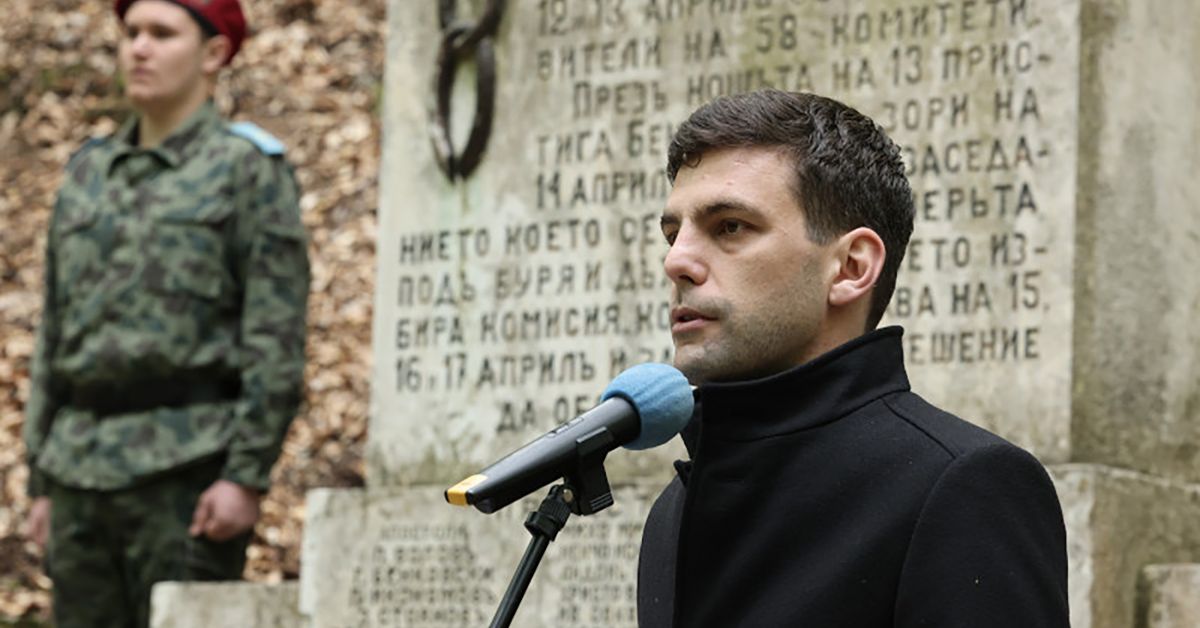Parliament can only vote on the deployment of armed forces
The government, not the deputies, can decide to send military aid
The PP did not want a debate on the subject
The National Assembly will violate the Constitution if it votes on military-technical assistance for Ukraine, lawyers warned. The Basic Law of the state stipulates that the National Assembly allows the sending and use of Bulgarian armed forces outside the country, as well as the stay of foreign troops on the territory of the country or their passage through it (Article 84, paragraph 11). The Council of Ministers (CoM) is responsible for weapons, military equipment and other weapons.
The issue of military-technical assistance to Ukraine has caused confusion in the coalition – the BSP has threatened to leave it if a decision is made to send weapons. The DB has announced it will do the same if no such decision is made. A coalition council is scheduled for tomorrow to seek consensus on aid. The head of the BSP’s PG, Georgi Svilenski, told Trud that their position remained unchanged. Three options for decisions have been submitted to the parliament’s office. “We continue the change” propose to give a mandate to the Council of Ministers to provide “Humanitarian, financial and technical assistance to Ukraine.” The DB relies on military-technical assistance and points out that the money for it will be taken from the state budget and from EU and NATO funds. GERB insists that “the government provide military and technical assistance to Ukraine without affecting major defense platforms and weapons.”
We from “Continuing Change” will vote for the provision of military-technical assistance to Ukraine. This is a difficult political decision that we have to make. This was commented to journalists in the Oborishte area by the Speaker of the National Assembly Nikola Minchev.
Deputies from the ruling coalition commented to “Trud” that they have learned about a prepared scenario in which there will be no debates in the hall. However, this is unlikely to happen due to the many issues that accompany the projects. “It is not clear what we will give or where the money for this aid will come from. We will just sign a blank check of the Council of Ministers. This is not how things are done, “MPs told Trud. According to them, there is no definition of military-technical assistance anywhere.
Deputies recalled that according to the constitution, their powers in the military field are limited to a vote to send armed forces. And they explained that according to the law on defense, the armed forces also mean military equipment. Therefore, in the plenary hall, it is expected that explanations will be requested from the petitioners as to which law they refer to in their proposals.
Prof. Plamen Kirov: The deputies will act as an organized criminal group
The petitioners from the PP refer to a text of the constitution (art. 86, para. 1) that the National Assembly adopts decisions.
Article 105 of the Constitution states that the Council of Ministers directs and implements the domestic and foreign policy of the country, in accordance with the Constitution and the laws, and not with the decisions of the National Assembly. Because the decisions are not normative in nature. Military-technical assistance means everything – military, technical assistance and manpower. They play with fire.
The Council of Ministers ensures public order and national security. And exercises general leadership of the state administration and the armed forces. He directs the implementation of the state budget, but as voted by parliament. He cannot change the state budget. He cannot say give BGN 3 billion in military aid to Ukraine.
The Council of Ministers also organizes the management of state property, which means the military equipment of our armed forces.
And if they say from unit X take tanks and send them, the Council of Ministers makes an act of disposition. Military property is state property because only the state has armed forces. If the Council of Ministers wants, let it take this responsibility. And since they do not have immunity, the prosecutor’s office can ask them what they are doing – why they are spending the state budget inappropriately.
Second, they dispose of military property that damages the defense capability of the Republic of Bulgaria – Chapter One of the Penal Code.
But they will do so if the Council of Ministers votes. And the deputies under Article 69 are not responsible for their votes. When they make a decision, it becomes mandatory. In this case, the parliamentary groups that will support such a decision act as an organized criminal group – they allow money to be spent inappropriately from the budget and compromise security.
–


